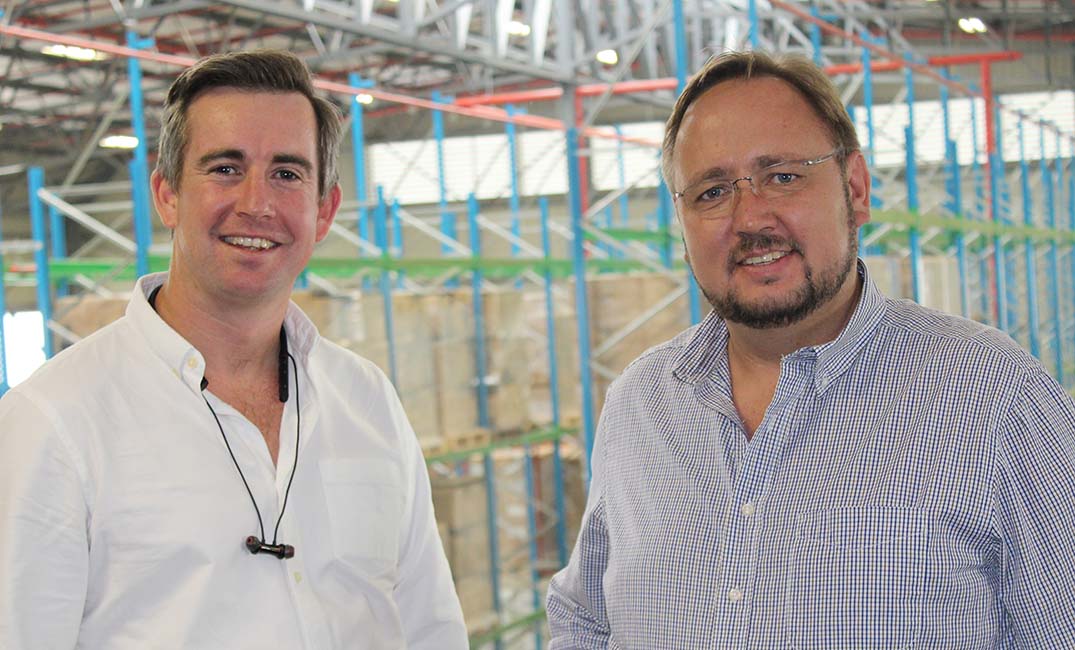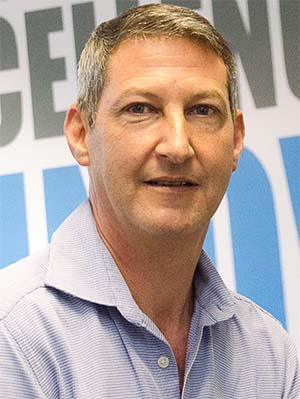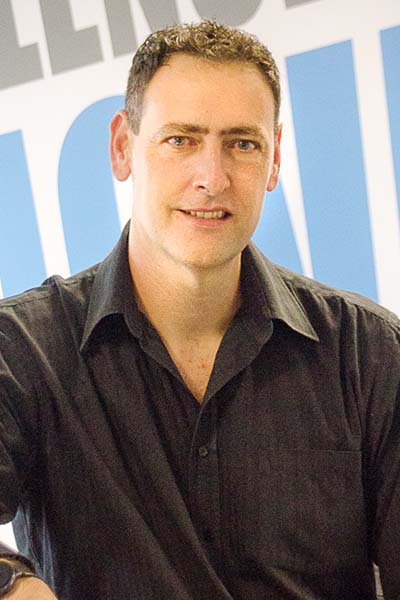If there is one constant in the IT distribution space, it’s that things will constantly change.
2024 proved the truth of this statement, with massive shifts in the market keeping distributors and reseller partners alike on their toes.
Syntech co-founder and sales & marketing director Ryan Martyn explains how an improvement in the electricity supply landscape caught many off-guard.
“As a business, 2023 was a great year for loadshedding-related sales,” he says. “Then, in March 2024, loadshedding effectively ended – and quite suddenly. It was nearly a year that we didn’t experience sustained loadshedding, and so the solutions we were supplying were no longer needed for that purpose.”
Fortunately, Syntech wasn’t overexposed to that one area of focus, so it was able to pivot the business successfully.
“For me, a highlight of the year was the fact that our team and brands could transition from being quite dependent on one category with great growth rates, to ensuring sustainable business and growth in other areas where we can add value to our partner and customers.”

Ryan Martyn and Francois Lottering.
Build it right with PCBuilder
Francois Lottering, regional director of Syntech, says the company’s PCBuilder and gaming systems brands have ramped up quickly, with an uptake in adoption by both retail and traditional reseller partners.
“Overall, we are seeing gaming as a major growth area,” Lottering adds. “And PCBuilder is helping to drive this. Building a PC, particularly a high-powered gaming machine, can be a daunting experience. PCBuilder gives resellers the power to build systems with confidence.
“The way we have positioned PCBuilder is that it solves a real need, giving performance benchmarks and allowing resellers and consumers to make informed decisions about what components and solutions are relevant to their needs.”
The PCBuilder brand is now moving beyond its strong gaming focus – allowing partners to build solutions in the education, consumer, and commercial space.
“PCBuilder allows our channel partners to compete with a diverse range of vendors while still catering specifically to South African market conditions,” Lottering points out.
A focus on education
The education market in South Africa offers a vast and largely untapped opportunity for well-designed and fit-for-purpose solutions.
“Education is very dear to our hearts and speaks to our reason for existence – which is to enrich the lives of people in Africa through technology,” Martyn says.
“As it stands, there is a massive disconnect between the haves and the have-nots on the continent, and we believe technology can help to bridge that gap.”
To this end, Syntech took on the Acer distribution in 2024, primarily to supply its Chromebook solutions within the education market.
Martyn adds that schools need cost-effective technology solutions, coupled with the better use of resources.
“With Acer and our PCBuilder offerings, together with our Gizzu charging trolleys, we can put together a solution for schools across the board,” Martyn says. “These are innovations we can get excited about.”
“We have seen remarkable uptake for our education solutions – and we can also see the difference they are making.”
Smart appliances on a growth trajectory
High-tech is quickly making its way into all aspects of our lives, and Syntech is seeing pleasing growth from its Xiaomi range of smart home appliances.

Craig Nowitz
According to Syntech CEO Craig Nowitz, this growth has been tracked across the product line-up – from fans and heaters to air purifiers and humidifiers. “And there has been a massive uptake on robotic vacuum cleaners.”
Home-grown accessories
Syntech has also experienced good growth for its own brand, WINX.
“We introduced WINX to encompass multiple products under our own brand,” explains Nowitz. “And we deal with one of the top three factories in the world for each of our WINX product categories.”
Because Syntech exercises oversight and quality control over manufacturing, it has been able to put together a wide range of products that are reliable and completely supported by Syntech’s own resources.
This translates into better warranty and support than comparable products in the market, Lottering adds. “All of our WINX products come with a standard two-year warranty.”
New solution offerings
While it’s been growing its solid base of product and solution offerings, Syntech has also been building the capacity to take on additional brands.
Within the last few months, it has added seven new distribution agreements – all of them top brands within their categories, says Nowitz.
They include LG, Hikvision, Hiksemi, Acer, UGREEN, Wanbo, and, most recently, ASUS.
At the same time, it has expanded its own PCBuilder offering to include upgrade kits, all-in-one PCs (AiOs), and mini-PCs. “So, we are no longer offering just gaming solutions, but business solutions as well,” says Lottering.
Full support
Customer support can be a major frustration for partners. Having to collect faulty products and drop them off at the distributor, then wait days or weeks while they’re shipped to the manufacturer is not something that resellers relish.
Syntech is making bold moves to change this status quo: PCBuilder customers can now call the distributor directly whenever an issue can be diagnosed over the phone. If Syntech’s technicians can’t solve the problem remotely, the company will collect and fix the machine before returning it to the customer.
“We are doing this with a number of the brands,” says Lottering. “It means the reseller doesn’t have to collect or deliver faulty products: we do all that for them.”
“By taking complete responsibility for services, we add a lot more value to our partners,” he adds.
Industry trends
The last year has been a watershed for the IT industry, with cloud computing becoming mainstream and artificial intelligence (AI) dominating conversations.
While popular opinion might say cloud computing has sounded the death knell for on-premises computing, Martyn believes that security, privacy, and data sovereignty concerns are driving a new move towards localised systems.
“The other big challenge in 2024, and going into 2025, is security,” Martyn says. “There have been so many data breaches and leaks that most governments and many enterprises are again interested in in-house systems.
“AI is also playing into this trend, with organisations looking to secure localised systems for their own large language model (LLM) training.”
Overall, Martyn believes 2025 will bring more opportunities for local infrastructure growth.
Nowitz concurs: “We know AI is the future, but customers must be cognisant of the issues it brings with it, including security challenges.
“Syntech has always been focused on customer needs, so we will be expanding our solutions and software offerings to include cyber and network security,” Nowitz says. “We will also start to offer more solutions on the server and networking side.”
Pivoting for growth
In 2025, Syntech will continue to drive its agenda to remove complexity for its reseller partners and their customers.

Rudi Thietz
As it grows the volumes of brand sales and PCBuilder solutions, it has been able to strip complexity from the equation, which allows partners to drive real savings to customers, says Syntech operations director Rudi Thietz.
“We are not only pushing savings through the value chain but also removing uncertainty,” Thietz says. “The PCBuilder configurator we’ve developed, and continue to improve, removes any doubt about whether a configuration that the customer builds will work as planned or not by handling all the complexity of component compatibility in real-time. So, end users only see a cohesive and working solution that meets their needs.”
This means reseller partners have more freedom to focus on niche markets where they can bundle value-added services.
“In the modern retail world, getting product to market is cheap, so resellers have to carve out their niches, providing solutions that are an indispensable part of their business value,” says Martyn.
“This is what we are doing as a business.”
The role of automation
Syntech, as a technology distributor, is also using technology to improve and streamline its own business operations. Automation makes the company easier to do business with while increasing its profitability and competitiveness.
“We are automating the full process with API integrations,” Martyn explains. “Resellers can log into the system to see a full and up-to-the-minute inventory, and process orders which we can then ship on their behalf.”
“So, partners don’t have to invest in stock, but have full visibility of our warehouses,” he adds. “This allows us to deliver more value and services.”
“It is a powerful way to help our partners grow,” Martyn says.

